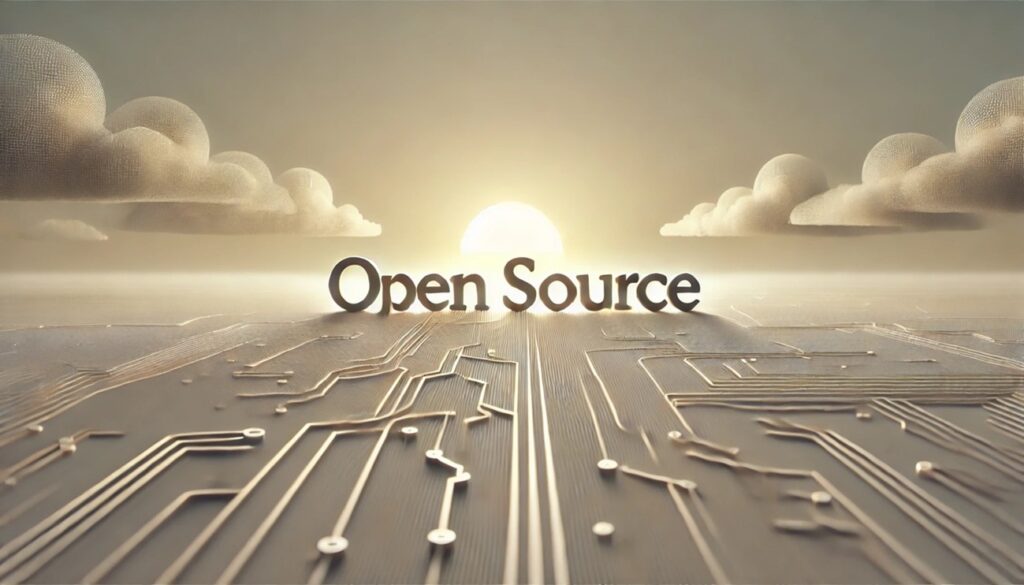We are living through a historic moment in the world of technology, where artificial intelligence (AI) is breaking away from the traditional stronghold of Big Tech.
For decades, AI advancement was constrained by high barriers, such as massive financial resource demands, cutting-edge technological infrastructure, and highly specialized teams.
This scenario limited innovation to a small group of global companies that monopolized the future of technology. But a remarkable turnaround has begun to reshape this landscape.
The advent of Open Source in AI, spearheaded by the revolutionary launch of the Chinese company DeepSeek’s model, marks a watershed moment.
This event not only democratizes access to advanced AI technologies but also creates opportunities for new players to enter the market: innovative startups, academic researchers, small companies, and even emerging nations that can now participate in an ecosystem that was previously unreachable.
The End of the Technology Monopoly
DeepSeek’s Open Source model symbolizes an enormous boost for the sector.
Unlike the closed systems of major corporations, which require expensive licenses and proprietary infrastructure, Open Source allows any person or organization to access the code, study it, modify it, and adapt it to their specific needs.
This drastically reduces development costs and levels the playing field for smaller competitors.
Companies that previously lacked the means to enter this market now find an accessible platform for innovation.
Startups can create personalized solutions in sectors like healthcare, education, and agriculture, while academic institutions can accelerate their research and collaborate globally with greater ease.
The New Landscape for Professionals and Companies
For professionals, this transition represents a leap in terms of capacity building.
Instead of depending on proprietary and closed systems, the new environment fosters practical learning in open technologies, creating demand for specialists in open source model training, data management, and custom solution integration.
Those who understand and adapt to this scenario will have a competitive advantage.
Medium-sized companies, which previously depended on external solutions from Big Tech, can now internalize processes and develop their own technologies, increasing their technological independence and often reducing costs.
This movement also encourages the creation of collaborative ecosystems, where companies of different sizes share resources, knowledge, and innovation.
A Revolution for Academia and Nations
In the academic sphere, access to open models expands applied research capacity.
Universities can create AI laboratories at lower costs, promoting advances in areas such as sustainability, energy, and urban mobility.
For nations, especially emerging ones, Open Source brings the opportunity to build their own technological infrastructure, reducing dependence on foreign giants.
Countries that invest in developing local solutions using open models can generate profound social and economic impacts, from creating skilled jobs to solving regional problems.
The Future of AI: Open and Inclusive
The arrival of initiatives like DeepSeek’s model is a powerful reminder that technology can (and should) be inclusive.
We are witnessing a power transition, where innovation ceases to be the privilege of few and becomes a collective, collaborative, and global movement.
However, this scenario also presents challenges. The governance of open source models needs to be discussed.
How can irresponsible uses be avoided? How can we ensure that open technologies are not manipulated for harmful purposes?
The responsibility for ethical AI use now falls on a broader spectrum of actors, requiring clear regulations and international collaborations.
Conclusion: The New Era of AI
The “Great Turn of the Technological World” is not just a paradigm shift; it’s an invitation for everyone to be part of the future. Professionals, companies, academic institutions, and nations face a unique opportunity to shape a new normal that is more accessible, sustainable, and diverse.
In this new world, knowledge becomes a shared asset, and innovation becomes a collective effort.
And perhaps this is Open Source’s greatest triumph: reminding us that technology, in its essence, should serve humanity.
Welcome to the new era of AI.
Alexandre Korowajczuk is Project Engineer at CelPlan Technologies working with Project Planning and Management Consulting
Text from The New Normal Newsletter – https://www.linkedin.com/newsletters/o-novo-normal-7200542437621059585/

